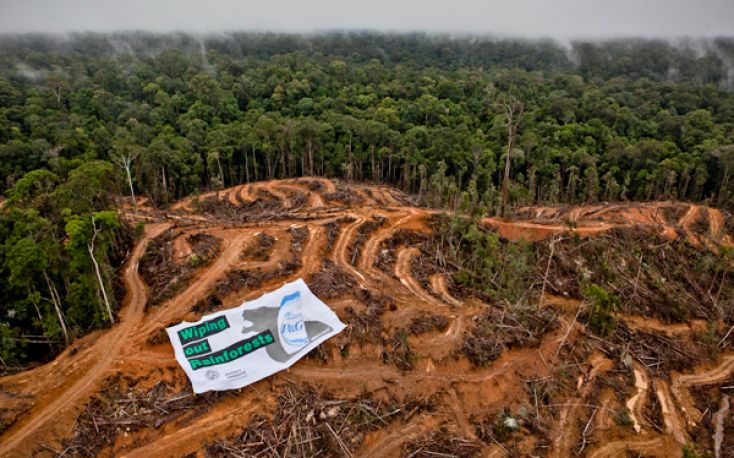A cargo of precious sawn tropical timber (padoek) from Africa is was blocked this month in the Belgian port of Antwerp after Greenpeace Belgium officially alerted the government of its presence there. The sawn timber has been produced by Chinese logging firm Wan Chuan Timber Sarl (WCTS) which has been repeatedly exposed for illegal and destructive logging operations in the rainforest of Gabon, Central Africa, media reports said.
Since there is a high risk that illegal timber is being imported to the European market, Greenpeace is calling on the government to immediately carry out a comprehensive investigation into all stakeholders involved, prevent the wood from entering the EU market and sanction those responsible.
The cargo that is currently blocked in the port is only the last part of a bigger timber-load that was shipped from Gabon to Belgium at the end of last year, it said.
It is likely that an important part of this timber has already entered the European market, according to the same source.
The European timber regulation, which entered into force in 2013, obliges all traders to follow due diligence and import wood into the European market only when all measures have been taken to minimize the risk of being from an illegal source.
“Those in Belgium who trade in WCTS wood are violating the European timber regulation” Philippe Verbelen, forest expert at Greenpeace was quoted by the statement as saying.
“Protecting our forests against illegal exploitation is a vital part of our global efforts against climate breakdown and the collapse of biodiversity,” he said.
The warning comes after a recent report released by Global Witness, an international NGO advocating for human rights and the environment protection has indicated that governments of African timber exporters are not providing crucial public access to information about how their forests are managed.
The report found that local communities are often unable to access key data and documents, or authorities are reluctant to provide timely information.



Leave a Reply